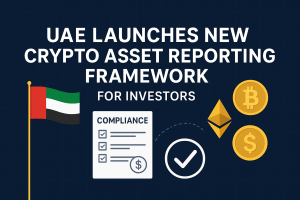Refinancing your mortgage could be a smart decision if it would save you money or make your monthly bill payments easier.
Refinancing should only be done, according to some experts, if you can reduce your interest rate, shorten your loan term, or both. However, there are other benefits as well.
For instance, you may want temporary respite from a higher monthly payment, even if it necessitates taking out a brand-new 30-year loan. You might be capable of accessing your home’s equity through refinancing, or you may be able to eliminate a Federal Housing Administration (FHA)-backed loan and the associated monthly mortgage insurance fees.
How Does Refinancing a Mortgage Work?
Refinancing involves getting a new mortgage to pay off your old one or second mortgage. Financing a home through refinancing is similar to obtaining a mortgage. However, the burden of purchasing and relocating will be lifted from you, and you won’t feel as pressed to close by a specific date. Additionally, if you change your mind, you usually have until midnight on the third business day after your loan closes to reverse the transaction.
Lenders are busy, and refinancing might take longer when interest rates decrease, and many homeowners desire to do so. It may take up to a week longer to refinance a loan guaranteed by the VA or the FHA than it would a normal refinance.
What Is the Best Time to Refinance Your Mortgage?
Refinancing isn’t always the best choice, even if it might be advantageous in some situations. Here are a few potential justifications for mortgage refinancing:
- By prolonging the loan term or lowering the interest rate, you could reduce your monthly mortgage payment.
- A lower mortgage rate, a shorter loan term, or both can help you save money on interest over the long term.
- Mortgage insurance is dispenseable.
- As you evaluate your alternatives, consider the closing fees associated with refinancing. These might consist of origination, appraisal, title insurance, and credit report fees, for instance. Closing expenses usually equal two to six percent of the loan amount.
For the purpose of determining the break-even point—the point at which the savings from a reduced interest rate outweigh the closing fees—you must also be aware of the loan’s closing costs. By splitting your closing fees by the monthly savings from your new payment, you may compute this point.
Reasons to Refinance Your Mortgage
Image Source: Peglarrealestate
Refinancing to Reduce the Length of the Loan
Refinancing a 30-year mortgage to a 15-year mortgage will often result in a higher monthly payment. However, reducing the number of years on your mortgage will result in reduced interest payments over time. 15-year mortgages also have lower interest rates. Reduced loan terms can result in significant interest savings, particularly if you aren’t deducting mortgage interest from your taxes.
With the current low mortgage interest rates, some people would rather take longer to pay off their house to save more cash for higher-rate investments and for their profits to compound.
Refinancing to Convert a Fixed-Rate Loan to an Adjustable-Rate Loan or the Other Way Around
Some borrowers want to lock in a fixed rate on an adjustable-rate mortgage, so they refinance. However, there are additional circumstances in which switching from one adjustable-rate mortgage (ARM) to another or from a fixed-rate mortgage to an adjustable-rate one makes sense. Specifically, if you want to sell in a few years and you don’t mind paying a higher price if you wind up living in your present house longer than anticipated.
Refinancing to Eliminate Your FHA Loan
Mortgage insurance costs (MIPs) for FHA loans range from $800 to $1,050 annually for each $100,000 financed. You can only avoid these premiums by taking up a new loan that the FHA doesn’t guarantee since you have to pay them for the course of the loan unless you make a down payment of more than 10%.
Refinancing to Remove PMI
Refinancing is only sometimes necessary just because you may get rid of your private mortgage insurance on a traditional loan. You may eliminate PMI without having to pay off your loan, unlike FHA MIPs. Once you have enough equity, usually 20%, you can seek cancellation.
Would It Make Sense to Refinance into a 15-Year Mortgage?
Refinancing for a reduced monthly payment is the primary motivator for several folks. Recommitting 30 years of payments might not be the best course of action in the long run, but in the near term, it can be necessary to maintain your house and make your bill payments. If circumstances get better later, you may refinance again or pay down your loan more quickly to save money.
Check with your bank for savings on refinancing. Certain banks may waive certain fees or offer discounts to consumers to encourage refinancing. For example, your bank could waive the loan origination cost or give you a small discount on your interest rate. If you’re looking for special refinancing offers, check your bank’s website or call the branch closest to you.
What Is The Cost Of Refinancing A Mortgage?
Image Source: Wallstreetmojo
Closing fees for mortgage refinancing differ depending on the lender and the amount being refinanced, but generally speaking, you should budget between 2% and 6% of the loan amount. According to research by ClosingCorp, the average closing expenses for a single-family home nationwide were $2,375 as of 2021, up 3.8% from the year before.
Typical closing expenses include the following:
- Appraisal fee
- Credit check fee
- Attorney fees
- Origination fee
- Application fee
Remember that sometimes a lender will waive some expenses (such as origination or processing fees), so make sure to inquire about any possible savings or whether any of your closing costs are negotiable.
Additionally, a number of lenders provide refinance alternatives with no closing fees, allowing you to include your closing expenses in the loan amount.
However, this frequently translates into greater monthly payments and an interest rate. If you want to remain in your house for an extended length of time, it’s usually preferable to pay your closing fees in full upfront to prevent having to pay extra later.
A competitive rate on your mortgage will lower your costs throughout the loan if you can also have your financial profile in the best possible condition with a solid credit score, steady income, and little debt.
Conclusion
You may need to put in some effort, but it won’t take long to locate the finest refinance rates. Examine credit unions, banks, and Internet comparative shopping sites. If you wanted someone to perform the research and maybe connect you with lenders you wouldn’t locate on your own—lenders who might give you better terms—you can also engage with a mortgage broker.
Apply three to five times to get official loan estimates. The government mandates that the loan estimate include your anticipated interest rate, monthly payment, and closing expenses on a uniform form that facilitates cross-lender comparison shopping.
Rather than using cash for closing costs, you might use that money to pay off debt with a higher interest rate than your mortgage or put it into your emergency fund.
Another issue is that although a 15-year loan may cost significantly less in the long term, its annual percentage rate (APR) may be higher than that of a 30-year loan.








